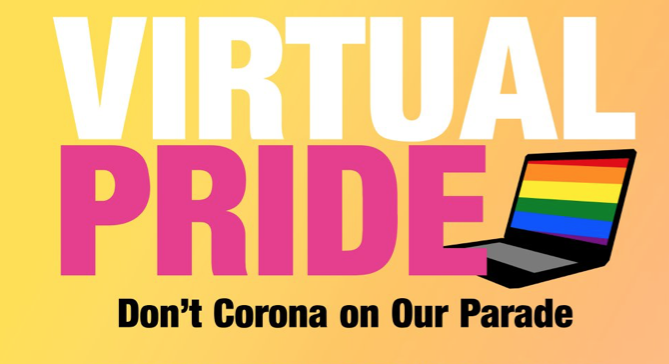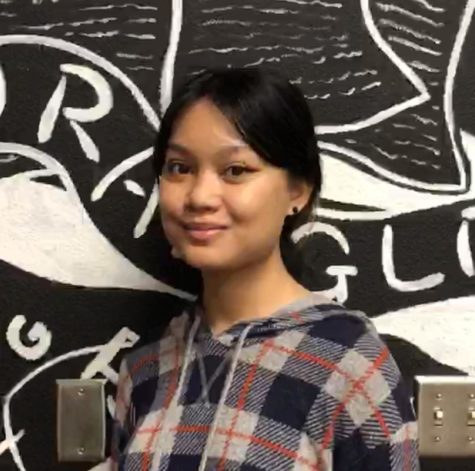2020 Pride
This Virtual Pride event is one of the many ways the LGBT+ community has reached out and shifted to online platforms.
June 9, 2020
The beginning of June marks the beginning of Pride month, a time to celebrate and recognize the LGBT+ (lesbian, gay, bisexual, trans, and others) community in a welcoming environment. It honors the 1969 Stonewall riots, the “tipping point for the Gay Liberation Movement in the United States” (Library of Congress).
The Stonewall riots consisted of “days of protests and violent clashes with law enforcement” (National Geographic); these movements were sparked by an aggressive police raid on Stonewall Inn, a popular New York gay club. The protests and riots were a driving force for activism and advocacy, also spurring the creation of many gay rights organizations and of course the yearly pride parades. As thousands of people marched the streets surrounding Stonewall, America’s first gay pride parade marked the first anniversary of the riots: June 28, 1970.
Since then, Pride month has become a time to acknowledge and celebrate the overcoming of years of outright prejudice and opposition towards the LGBT+ community. Throughout June, there is a significant increase in LGBT+ events such as parades, festivals, parties, online presence, picnics, or any sort of gay-positive activity. The rainbow flag certainly makes more appearances during these times.
Unfortunately, the current global pandemic “has largely thwarted Pride Month,” according to CNN. With social distancing and even quarantine, most large events and gatherings are being cancelled in the United States and across the world.
Although traditional activities may be impossible, people are finding other ways to celebrate Pride Month. Among public broadcasts and recordings, the most common change has been a shift to online festivities. For example, “New York City Pride announced… a three-day virtual drag show from June 19 through June 21” (CNN). In lieu with the true nature of Pride, the LGBT+ community is resilient.
This year, Pride has been largely influenced by the recent protests and riots surrounding the Black Lives Matter movement. As Pride celebrations continue, communities are “elevating black voices” and promoting justice through marches and demonstrations. After all, injustice to minorities and protesting police brutality were core ideals of the Stonewall riots.
Yet another thing to consider is the growing rumors of “Operation Pridefall.” The term Pridefall has recently been circulating social media, generating much concern in the LGBT+ community. Simply put, it is a potential collective harassment of LGBT+ supporters online. (Distractingly). The whole operation was organized anonymously on 4chan, an online posting forum known to be the origin of multiple rumored operations; the group of 4chan users threatened to dox, share personal information, and essentially cyberbully the LGBT+ community through popular social platforms such as Instagram, Facebook, Tiktok, and Twitter (NY Times).
Ultimately, most sources agree that Operation Pridefall is not a real threat. First off, 4chan “is notorious for saying they’re going to organize and raid places” and later those plans “…almost always fall apart” (Distractify). In addition, the group of users on 4chan are not nearly numerous enough to pose a real threat to entire communities, if any organization were to materialize at all. Still, it is important to be educated on how to protect oneself. As a practical precaution, Celebpie recommends creating strong passwords, avoiding opening links, blocking suspicious accounts, and staying aware. Emily Molendyk (9) admits that she is “just scared for everyone… and paranoid.”
With pandemics, riots, police brutality, and raids to be considered, it becomes more important to stand together against the spread of hate. As actress Ellen Page puts it, “This world would be a whole lot better if we just made an effort to be less horrible to one another.”





































